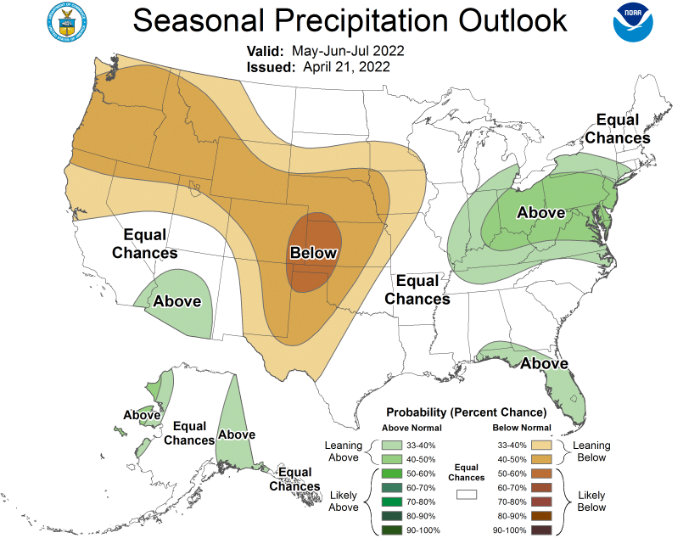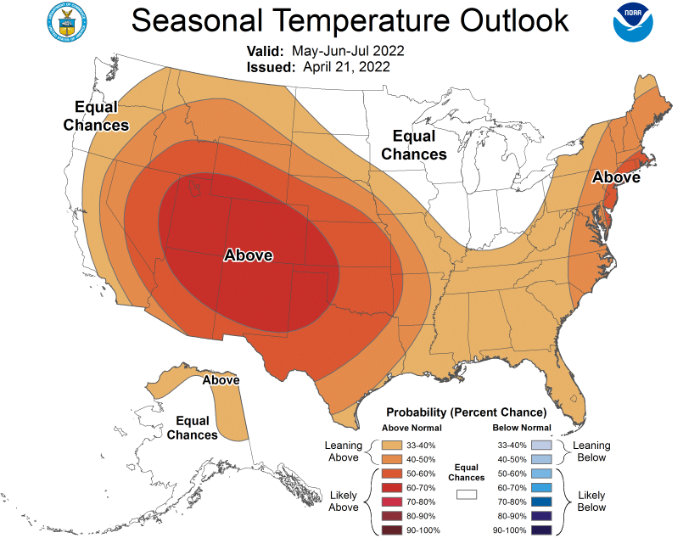Ukraine war
Russia stopped sending natural gas to Poland and Bulgaria. Bulgaria said that it has enough gas for the time being, and Poland had already started taking steps to wean off Russian gas, so this move might not cause the level of disruption it intended. In case of Russian gas disruptions, some countries have alternative supply options, and Europe’s gas network is linked up so they can share supplies. Hungary said it would comply with Russia and pay for its gas supplies in rubles because it has no other choice.
According to the director-general of the International Atomic Energy Agency (IAEA), radiation levels in the areas excavated by Russian soldiers near Chornobyl were high but still within workers’ annual exposure limits. IAEA delivered new monitoring equipment and reestablished links to the agency in Vienna.
Ukrainian armed forces intentionally flooded a village and the surrounding fields to prevent Russian troops from reaching Kyiv. It worked. Most residents are happy that it helped, even though they are still under water. The Ukrainians have employed various scorch-earth policies throughout the war. In one instance, they bombarded the runway of an airport near Kyiv to prevent it from receiving Russian special forces; in another, they blew out bridges and forced the Russians into a peat bog that sank four of their tanks.
Ukrainian authorities filed criminal charges against ten individual Russian soldiers accused of kidnapping and torturing civilians in Bucha. The International Criminal Court has also opened an investigation into the alleged genocide in Ukraine.
Microsoft released the most comprehensive public record yet of Russian hacking efforts related to the war in Ukraine. The report shows that Kremlin-backed hacking groups have conducted at least 240 hacking operations in Ukraine. Hacking activities seem to coincide with actual attacks on the ground, but it’s unclear if the two types of attacks are usually coordinated. Some cyberattacks have been aimed at gathering details on Ukraine’s population, cybersecurity, and military intelligence.
Russia deployed trained dolphins to block the entrance to their Sevastopol (Crimea) naval base.
Live updates and latest maps:
A map of the approximate situation on the ground in Ukraine as of 00:00 UTC 29/04/22. pic.twitter.com/chDgqWBDq3
— War Mapper (@War_Mapper) April 29, 2022
Economy
The US economy contracted in the first quarter, the first decline since the early days of the pandemic and a sharp reversal from the rapid growth at the end of 2021. Economists say that the evidence of economic recovery has been partially masked by the way inventories and trade are calculated and the winding down of Covid relief efforts. Consumer spending actually grew 0.7% despite skyrocketing gas prices and Covid restrictions.
The World Bank’s latest Commodity Markets Outlook report shows that we will suffer high commodity prices through the end of 2024. Energy prices will increase by 50% and food by 23% (with wheat prices rising by 40%). High fertilizer prices have exacerbated this spike in energy prices, and it’s the biggest since the 1973 oil crisis.
A recent analysis by the Guardian shows that the profits of most top corporations are increasing by a median of 49% while they pass inflationary costs onto consumers.
Climate change and extreme weather
Southern California declared a water shortage emergency. Officials ordered six million residents to restrict outdoor watering to only one day a week or find other ways to cut usage to a new monthly allocation limit. This is the first time the Metropolitan Water District of Southern California has taken such a step.
Climate change will cause animals to gather in cooler regions, increasing the spread of viruses. The study is one of the first to predict how global warming will shift wildlife habitats, increase encounters between species capable of swapping pathogens, and quantify how many times viruses will jump between species.
A new UN report shows that between now and 2030, we will experience around 560 disasters every year, up from an average of 100 just a couple of decades ago. This prediction could be an underestimate as climate change worsens in the following decades. According to the UN Office of Disaster Risk Reduction chief, 90% of disaster relief money is typically spent on emergency relief, while only 4% on prevention.
Storms of Category 4 and 5 could double in some places by 2050. Hong Kong, Tokyo, and Honolulu are among some major cities that will experience the most significant increase. The US has lost $480 billion due to tropical storms in the last decade alone.
It seems that the gist of all recent predictions has been: expect bigger, stronger, more destructive natural disasters. How do you prepare for such extreme events? In the same way you would normally prepare, but with the awareness that traditional seasons are shifting and that weather events might be more destructive, last longer, or start expanding geographically.
Never prepped before? Start here:
Continue by building your foundation:
- Financial preparedness
- Physical fitness (to whichever extent you’re able to)
- Prep for bugging in with at least 15 days’ worth of food and water, and a medical kit
- Prep for bugging out by knowing your evacuation routes, making a plan, keeping at least half a tank of gas in your vehicle, and having a BOB and an IFAK at the ready
Prepping for a specific event?
- Wildfires
- Hurricanes
- Tornados
- Extreme heat (older folks in cities are most affected)
- Winter emergencies and how to winterize your home and car for our friends on the opposite side of the globe 🙂
The news roundup from Apr 12 lists a bunch of websites and tool that predict how the climate will change in your area. Helpful if you want to research further how to adjust your preps. And here is our master list of other prepping scenarios. Tip: if you click on the “View discussion in forum” button next to a guide’s title, you will see a list of relevant forum and blog posts. Our forum is also a great place to share and seek advice.
Here’s NOAA’s three-month outlook for May-July:

Busan, South Korea, will build a prototype floating city designed to withstand rising sea levels and storms. The city will be able to hold 12,000 people, and it will be divided into three platforms: one for housing, one for communal spaces (theatres, restaurants, etc.), and one for research. The platforms will be coated in a buoyant limestone material called Biorock, which is harder than concrete, strengthens with age, and is self-repairing. The buildings will be made of sustainable materials like bamboo and timber, with five stories max. 800 million people will live in cities where sea levels could rise more than half a meter (1.6 ft) by 2050, so floating cities could be a smart way to both adapt to a changing climate but also ease housing crunches:
United Nations HQ: The world’s first prototype of a resilient and sustainable floating community is unveiled by partners @UN-Habitat, the Busan Metropolitan City of the Republic of Korea, @OceanixCity, BIG, and #SAMOO.#TheUN #UnitedNations #sustainability #Busan pic.twitter.com/XCMAVl5Y8c
— BIG (@BIG_Architects) April 27, 2022
Covid becoming endemic in the US?
Fauci said that the US is likely transitioning into a more manageable, endemic phase. But endemic does not mean that Covid will come to a natural end, nor that it will become less deadly. It just means that overall rates of infection are static. Malaria is endemic, and it still kills one million people a year. The best way to stop spreading variants that are more dangerous or transmittable is to stop their uncontrolled spread:

WHO update: global cases and deaths down, but new surges (mainly caused by new Omicron variants and sub-variants) in South Africa, Europe, and Asia. We’re keeping an eye on the new variants, but it seems that there is no reason so far for doing anything differently than with Omicron.
Moderna requested FDA authorization for their vaccine for children under six. The FDA should review the application within the next week.
Pediatric hepatitis spreads in the US and to new countries. Still no clues
Japan and China are the latest countries to have reported new cases. New cases have been confirmed in Alabama, Delaware, North Carolina, and Illinois in the US, while potential patients are monitored in New York and Wisconsin. One of the four cases being observed in Wisconsin resulted in death. Scientists still don’t know the exact causes of the outbreaks, but one possible theory could be that the children are indeed infected with adenovirus, but because they have been in lockdown, they have not been able to build a normal immune response and so even a mild infection is creating disproportionately worse symptoms.
The rest
You can now request Google to remove your personal information from Search. Removing content from Google Search won’t remove that info from the internet, and not all requests are granted, like in the case if that information is a public record. If you wish a specific website to delete your info, you’d need to contact the website owner directly. (Editor’s note: Edited to clarify that Google won’t remove your info from specific sites, just from their Search services, and added that removing content from Google Search won’t remove that info from the internet. The link provides more info, but also check the comments below for a useful conversation on the topic.)
Apple’s self-repair service is now available.
Ford finally launched its electric F-150 Lightning pickup truck. It has four outlets in its “frunk,” a battery that can be used to power a house for up to three days, a four seconds 0-to-60 acceleration time, and a 230-320 miles range. This year’s current model is no longer available for orders due to high demands.
The first human case of H3N8 bird flu was discovered in China. H3N8 flu is endemic in birds, horses, and dogs, and the risk of human-to-human spread is low.
MIT researchers have developed a portable solar desalination unit that uses electrical power instead of filters. The unit weighs less than 10 Kg (20 lb), produces 0.3 liters (about 1.2 cups) of clean water per hour, and requires only 20 watts of power per liter. The output is not great, and a 20 lb box is not the lightest, but it’s a step in the right direction. The lack of a filter that needs to be cleaned or replaced is likely one of the best features.
Here’s a nice article from The Guardian featuring British preppers.


You are reporting the comment """ by on